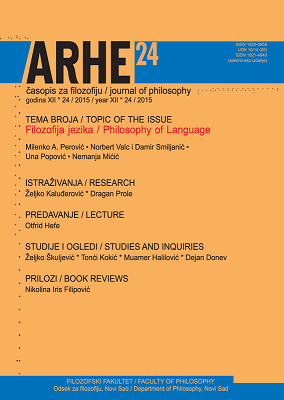Odnos između religije i etike u transcendentnoj filozofiji Mula Sadre Širazija
The Relationship Between Religion and Ethics in Mulla Sadra Schirazi’s Transcendent Philosophy
Author(s): Muamer HalilovićSubject(s): Epistemology, Ethics / Practical Philosophy, Islam studies, Early Modern Philosophy, Middle-East Philosophy, Philosophy of Religion
Published by: Филозофски факултет, Универзитет у Новом Саду
Keywords: religion; ethics; good; evil; transcendent philosophy; Mulla Sadra Shirazi;
Summary/Abstract: Among the most important issues in the philosophy of ethics is the question of the relationship between ethics and religion, or whether religious statements are at the same time moral or not. This dilemma leads to many other more detailed questions such as: Did the fi rst forms of ethics originate in ancient religious traditions? Are religious traditions in line with morality or whether ethical statements and ideals stem from religion? Is it possible to have non-religious or anti-religious ethics? Is it possible to have a non-ethical or unethical religion? Many thinkers have given their answers to these questions, but to other similar questions as well. In this way, three general ideological stances on the relationship between religion and ethics have been formed: one group believes that religion and ethics are two totally disparate and unconnected systems, another group points out that these two are identical systems, while the third group promotes the idea that religion and ethics are actually two fully autonomous systems that are interconnected. In this paper, we will introduce each of the three mentioned stances and then go on to analyze the stance in this debate advocated by Mullah Sadra Shirazi, the founder of transcendent philosophy in Islam.
Journal: Arhe
- Issue Year: 2015
- Issue No: 24
- Page Range: 163-179
- Page Count: 17
- Language: Serbian

